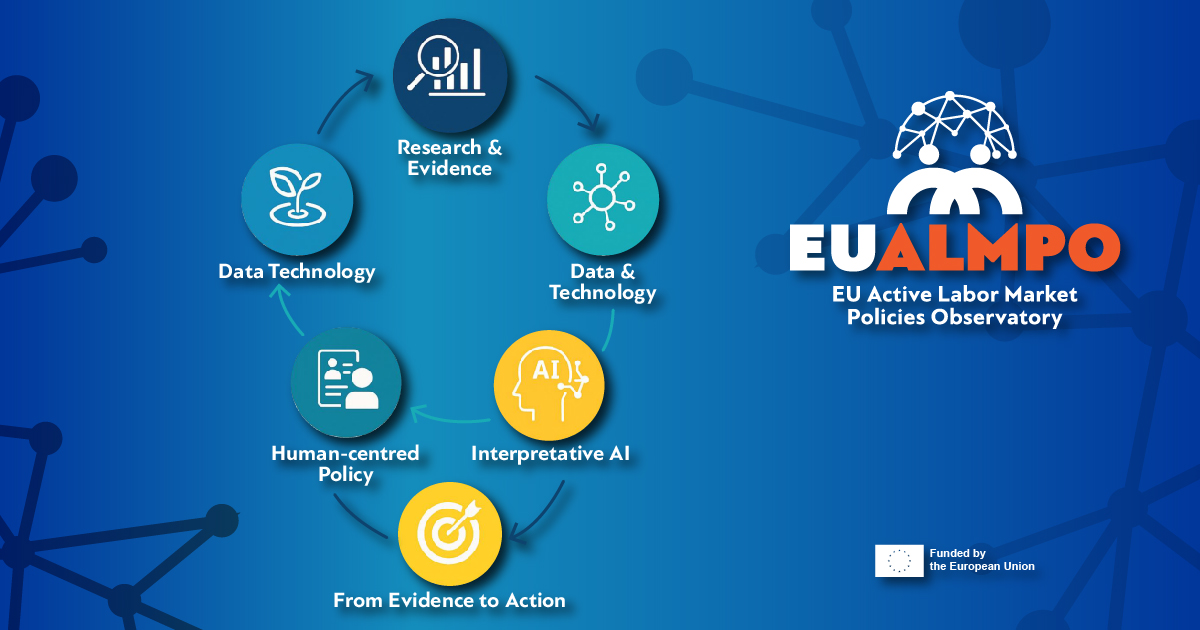How can research, technology, and policy come together to build fairer labour markets across Europe?
This question guided the latest EU-ALMPO consortium meeting, held in Gdańsk, Poland (29-31/10), where partners gathered to review progress and plan the next steps toward the creation of the EU Active Labour Market Policies Observatory.
The discussions in Gdańsk went far beyond technical milestones. They focused on how the Observatory’s AI-powered tools can translate knowledge into action — turning large amounts of research evidence and policy data into practical support for decision-makers. Partners explored how the upcoming “Wizard” interface and the ALMP Repository will allow users to visualise patterns, compare national practices, and identify what works best in tackling skill mismatches across regions and sectors.
The meeting also underscored a shared vision: evidence-based policy must be human-centred. As Europe moves through major green and digital transitions, the Observatory aims to help policymakers design measures that combine technological innovation with inclusion, fairness, and adaptability.
In Gdańsk the consortium debated not the creation of a “silver bullet” for AI-assisted policy making, but a new generation of interpretative AI architectures: systems that enhance rather than replace human judgement. These are designed to work as human-AI ensembles, where algorithms support the creativity and contextual insight of labour-market practitioners. Data alone cannot capture the complexity of real labour markets; collaboration across disciplines — from social scientists and policy designers to artists and AI developers — is the true “gunpowder” behind the Observatory’s innovation.
What emerged in Gdańsk was a renewed commitment to bridge technical design with lived experience. Partners agreed that the Observatory’s success will depend on how well its tools foster dialogue between users and technology — enabling policymakers, researchers, and citizens to interact with evidence, test assumptions, and co-create solutions. The meeting confirmed that interpretative technologies are not an add-on but a connective tissue linking data, practice, and purpose.
Leaving behind the hosting venues of Gdańsk University of Technology, the consortium embraced a vision of AI as a collaborative ally — a system built not to automate decisions, but to expand human capability, empathy, and foresight. As the EU-ALMPO project advances toward its next milestones, its partners carry forward the Gdańsk spirit: resilient, reflective, and ready to transform labour-market policy across Europe.
